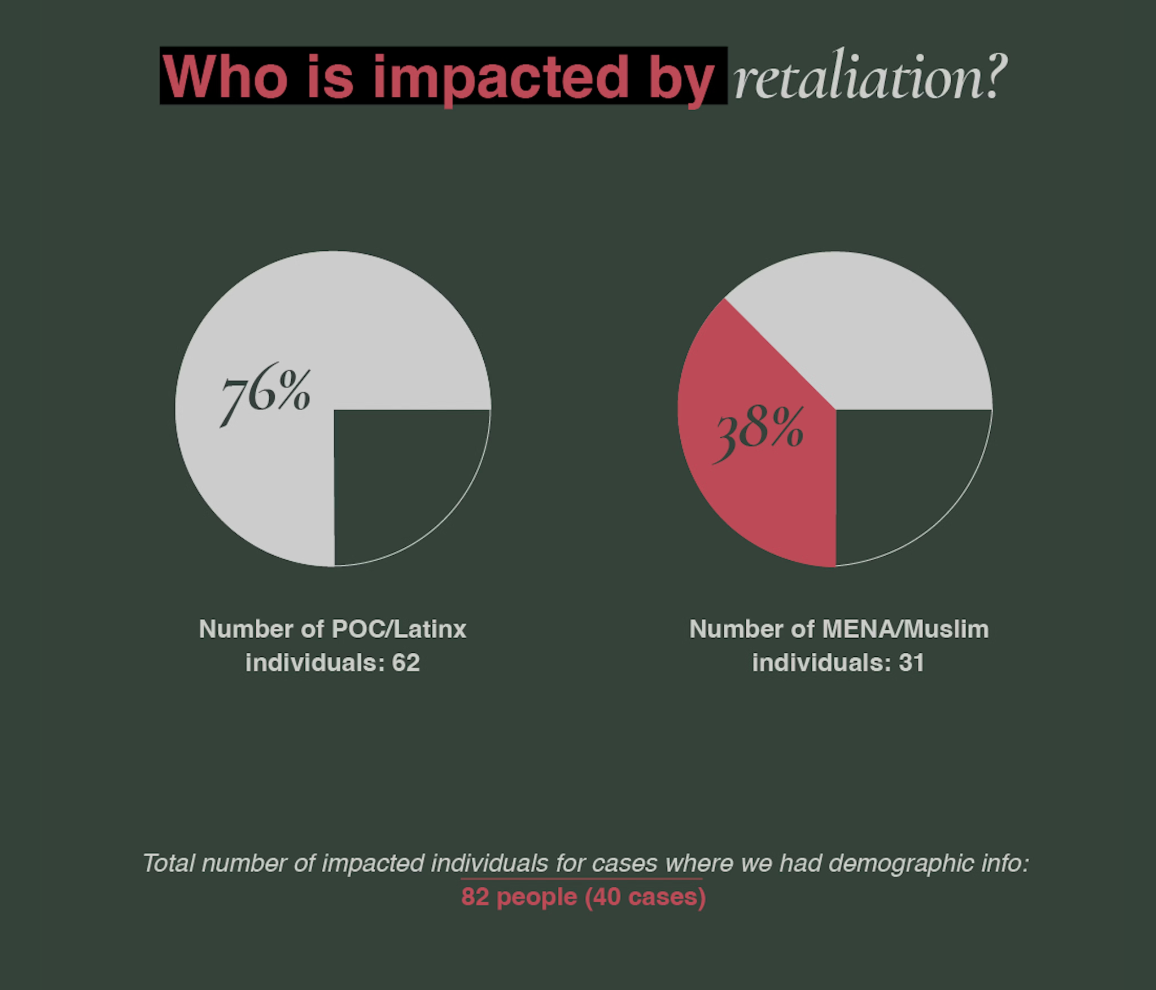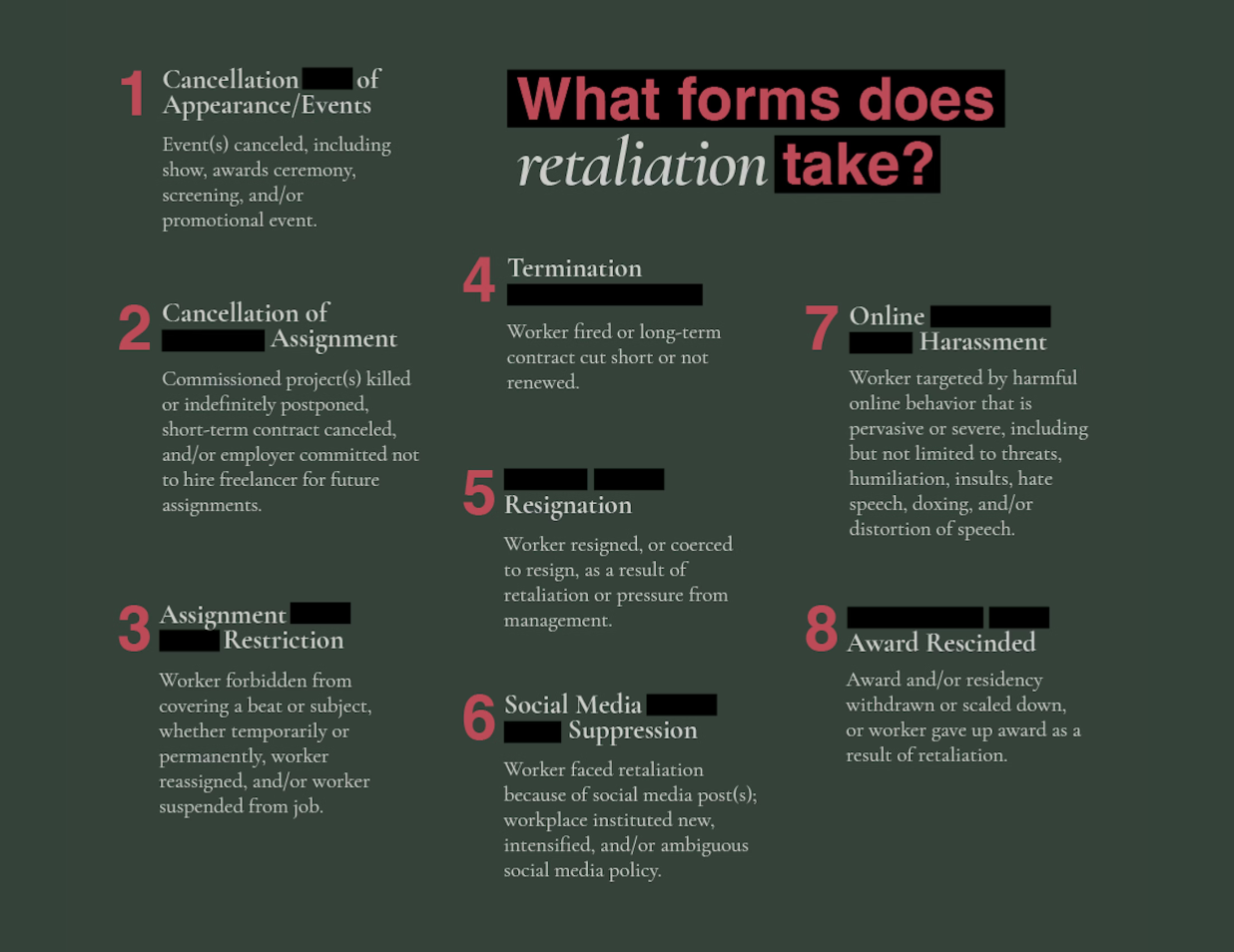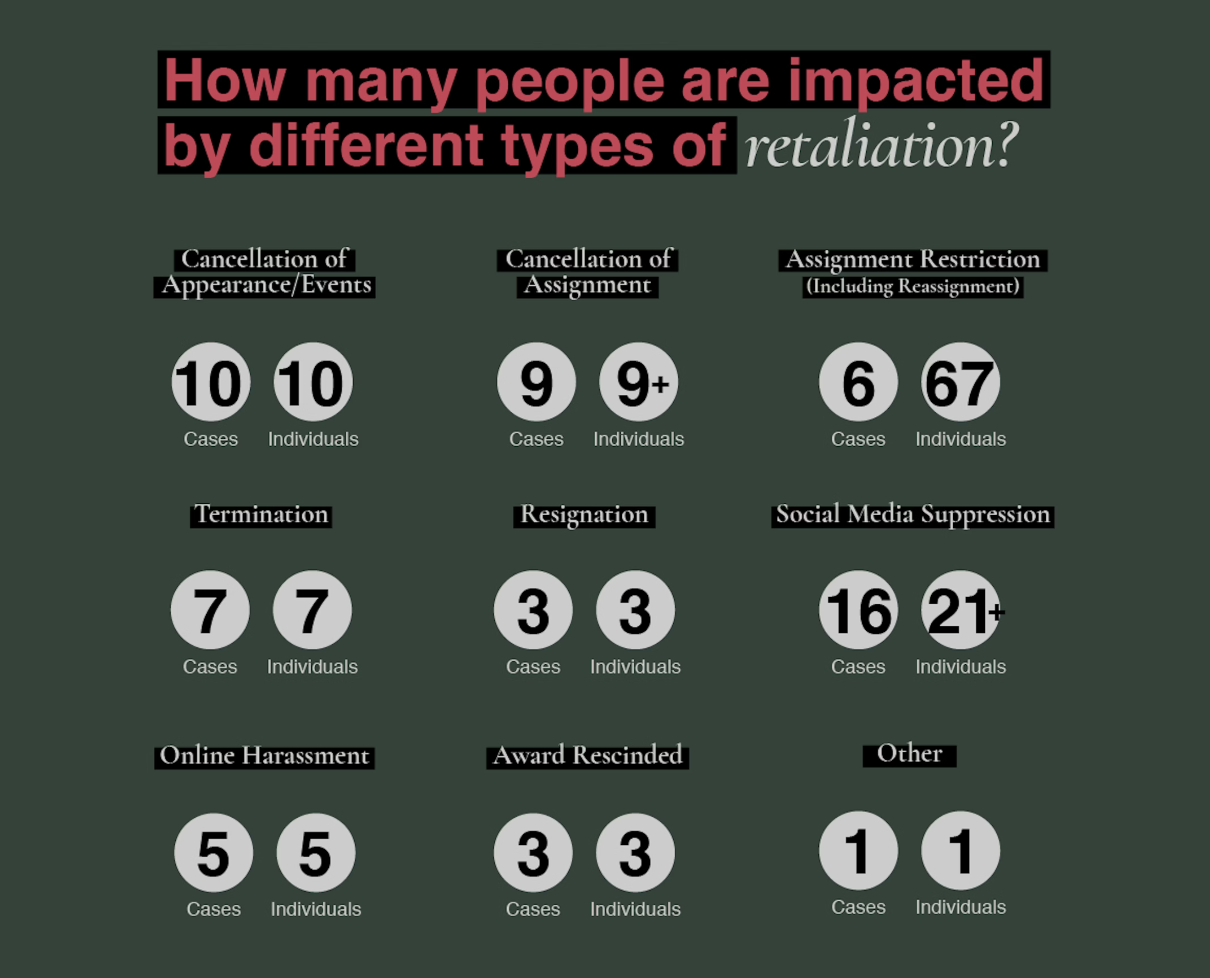NEW The Most Important Reporting I've Done This Year
One of the most challenging pieces of reporting I've worked on this year published while I was on vacation last week. Yes, this is what some of you may have heard me refer to as the "goddamn retaliation report," when you asked me about my plans for the weekend, over the last few months. I helped coordinate a couple dozen members of the Freelance Solidarity Project and other journalists in tracking retaliation against media workers for speech on Israel and Palestine. It was as painstaking as any journalistic data project I've ever done, and I hope my colleagues working in media will pay attention to what we found.
The Backstory:
Back in October, reports started emerging of media workers facing professional consequences for posting criticisms of Israel on social media, signing letters in support of Palestinian journalists, or writing articles or books perceived as too supportive of the Palestinian cause. Some of my fellow members of the Freelance Solidarity Project (the closest thing freelance media workers have to a union) launched a survey inviting people to share their experiences of retaliation for their views on Gaza. The idea was for the union to offer them support, however we could. We saw this as a clear labor issue, and so we did what unions are supposed to do. (Note that the survey is still active, so if you are experiencing retaliation, please consider reaching out.)
I helped with intake and spoke to multiple media workers who said that they wanted to see a broad pushback against what they saw as a crackdown that was suppressing vital information about Israel's war on Gaza. Again, we did what labor organizations are supposed to do: We responded to the needs of the workers. In this case, we used the journalistic skills that qualified many of us to be members of FSP, and launched a data project.
Highlights:
>>We identified 44 cases of retaliation against media workers for speech perceived as supportive of Palestinians or critical of Israel between October 7, 2023, and February 1, 2024, impacting well over 100 people.
>>Retaliation disproportionately impacted people of color. About 3/4 of the people impacted were people of color or Latinx people. More than 1/3 were Muslims or people of Middle Eastern or North African descent.

>>One of the most important things we did with this report is identify the forms that retaliation took.

>>You can see here that assignment restrictions and social media suppression were the most common types of retaliation people faced. The report is loaded with individual examples, so you can see the breadth of the suppression.

>>In many cases people criticizing Israel or writing sympathetically about Palestinians were framed as antisemitic. Several cases of retaliation were driven by groups like the Canary Mission, StopAntisemitism.Org, HonestReporting, and the Committee for Accuracy in Middle East Reporting and Analysis (CAMERA). Such groups pressure media employers, often by labeling workers’ social media posts criticizing Israel as antisemitic.
>>We identified an objectivity double-standard as a driving force behind the retaliation. As we wrote, "Our analysis suggests that what counts as 'objective' and what is deemed biased depends on factors including the background and identity of the worker; the prejudices of management; and external pro-Israel individuals and advocacy groups exerting pressure on any given media organization."
>>Of course the people facing the most severe repression have been journalists covering Israel's war on Gaza. At least 102 Palestinian, four Israeli, and three Lebanese media workers have been killed since the conflict began on October 7, according to the International Federation of Journalists.
>>Finally, we offered recommendations to help policymakers, media workers, and, especially, news outlets to shift course.
A few final thoughts:
Freelance Solidarity Project members spent tons of unpaid hours collecting these cases, verifying them, cleaning up the data, and writing the report as a collective. Throughout the project, I'll admit that I was angry that Israel's extreme violence toward Palestinians and my industry's spineless response meant that we had to spend all this time building this report. Having covered counter-terrorism efforts for years as both a fact-checker and a reporter, the idea that killing 35,000 people — or passing laws repressing protest, as I wrote about recently — or any of this is going to end terrorism is absurd. In addition to causing unspeakable pain and generations of harm for every family that has lost a loved one, Israel's violence is a huge waste of time.
It has of course, forced to the surface patterns of violence and discrimination — including the ones in this report — that were largely ignored before October 7. For U.S. journalists in particular, a plausible genocide being funded by our own government is something all of us should be thinking seriously and creatively about how to cover. I hope this report helps encourage editors to remove any barriers preventing journalists from doing the work. I also hope that it can be a call to action for media workers to get involved in whatever labor organization you can access and use it as a tool to make sure we can all continue to do the journalism that is desperately needed. That means working to support Palestinian journalists and media workers in the West who are still facing retaliation, and also pushing for fair pay and a sustainable media economy that assures that people are able to afford to do journalism at all. It is important right now, if we can, to begrudgingly use some of our off-work hours to do the hard work of organizing.
Member discussion